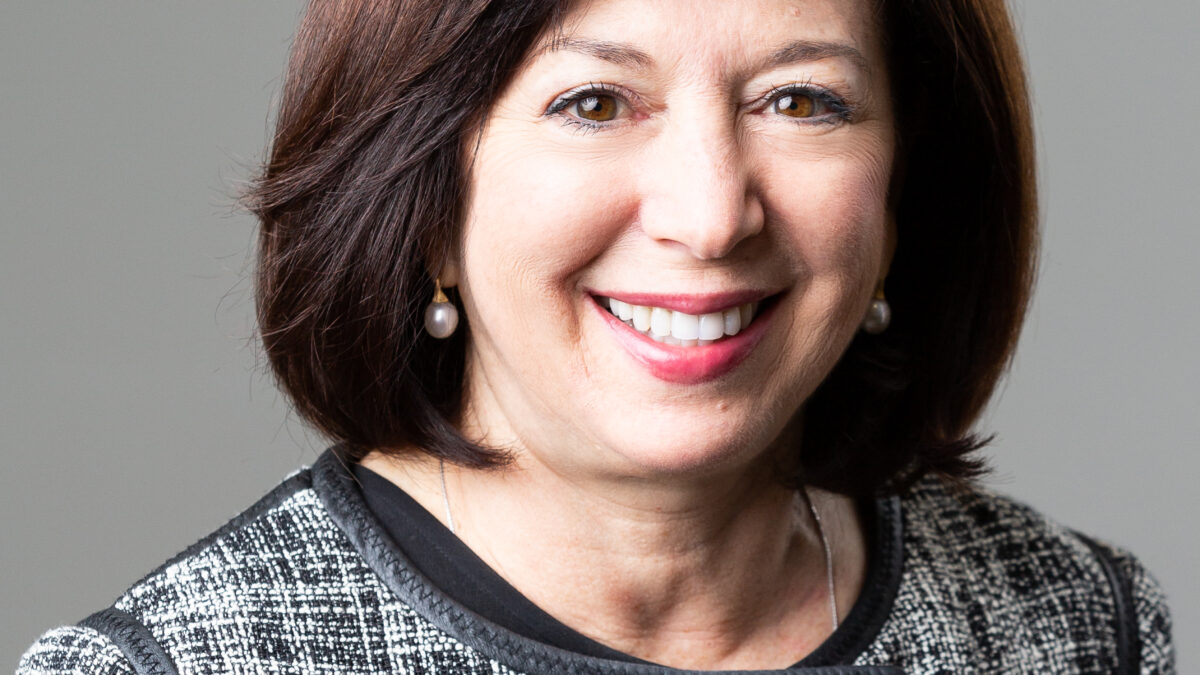CEO Leadership Series: A Biopharma Executive’s Next Act in Developing Life-Changing Treatments

Susan Dillon, Ph.D.
Co-founder, President, and CEO at Aro Biotherapeutics
When Susan Dillon co-founded Aro Biotherapeutics in 2018, she had already led teams of researchers at Johnson & Johnson to develop revolutionary drugs for autoimmune diseases—Remicade®, Simponi, Stelara® and Tremfya®.
“The complex projects we took on were like sending a rocket ship to the moon—it was that magnitude,” Dr. Dillon recalls.
In the next act of her highly successful career, she is no less ambitious. Dr. Dillon is currently spearheading the development of the novel Centyrin protein platform, which addresses unmet medical needs by delivering a high concentration of RNA drugs and other modalities to the site of the disease while lowering the toxicity to other parts of the body.
In an interview with Ashton Tweed, Dr. Dillon discusses the questions she asks all prospective team members and why Centyrins could be the next big development for medicines that directly modulate the genes involved in causing the disease:
You were involved in the development of some very well-known drugs. What did you learn from those experiences that have helped you launch Aro?
I learned the critical importance of having a fantastic team of experts. I learned that drug development is extremely challenging and it takes a village—literally. It takes a lot of people with many different disciplines and weaving that together is critical.
But, I guess first and foremost is to start with defining the end game. In other words, you need to really understand how the potential new medicine that you’re developing is going to meet an unmet need in a very meaningful way, and you need to try to understand that from all the angles—the scientific angle, the patient angle and the regulatory angle. You need to understand the value and goal of the product, determine if insurers are going to reimburse for the product, and know the path towards FDA approval.
So, you do all of that before much has been done in the lab and then work backwards to make sure that, as you develop the program from the very early stages, you continue to build around your strategy supporting the product concept. It all starts in R&D, but it doesn’t start in a vacuum. It’s not just research for research’s sake of interesting science. Even if it’s fairly basic research, it should be very product-focused.
You mentioned the insurance angle—has that been an issue?
In this day and age, there are very strict requirements around reimbursement and insurers are taking a different approach on how they put drugs on their formularies and how they reimburse for them. But, the really important thing is to make sure you know what the regulatory endpoints are that are going to ultimately garner marketing approval and allow you to get the right data and the right claims on the product label. So, all these things are connected.
How do you build the right management team to accomplish these goals? What do you look for?
I look for experience and a track record of success, and people who are really self-motivated and have a lot of energy to do what we’re doing. Depending on the role, we are looking for talented people with years of experience and a successful track record, or they can be people earlier on the learning curve who are hungry to get more experience.
When you’re interviewing candidates, are there any questions that you like to ask people that help reveal their level of energy or commitment?
Other than the nuts and bolts about their background, I want to understand what motivates them. What do they really want to achieve in this job? That can reveal a lot and sometimes help us understand if the person is a good fit for the organization.
I’m also a big believer in speaking to references and I usually do a lot of reference checking—even if I’m convinced myself that a person is fantastic and a really great fit. I try to draw out not so much the person’s content expertise, but more about what motivates them, how they perform in a team, and that sort of thing.
Have you ever been surprised by what motivates someone?
I don’t know about surprised; I feel inspired from time to time. I think it’s a pretty personal question, but it helps me get a better understanding of whether someone is going to be a catalyst for our team. Every person that we hire has to be a catalyst, essentially, because with a small team you can’t afford to have anybody who’s not top of the class.
What motivates you?
The vision behind Aro Biotherapeutics, which is to build a great company that generates value for its investors and major breakthroughs for patients. It starts with translating the basic science into product concepts and then ultimately into products, which is the most fascinating journey that one can be involved with. Building a great company where we can bring a pipeline of innovative products forward is an exciting journey.
When you have had success getting new drugs approved and you speak to patients first-hand to understand the impact that these medicines have on people’s lives—that’s what motivates me. The drugs we worked on at J&J are life-changing.
What makes Aro’s Centyrin protein platform so revolutionary?
The intrinsic properties we designed into Centyrins enable the emerging field of genetic medicines—drugs that are based on DNA or RNA as opposed to the traditional types of drugs. One of the biggest challenges with these types of drugs is targeting them precisely where you want them to go in the body.
Because of the nature of Centyrins, we can make what we call drug conjugates. In other words, we chemically attach, for example, an RNA drug to a Centyrin and the Centyrin acts as the “address.” It takes the drug conjugate to either the muscle cell, the tumor cell or whatever cell in the body has the disease target, and then the RNA component is able to get inside the cell and do its job, which is to fix a diseased protein.
Will the Centyrin delivery platform have other uses beyond targeting cancerous tumors?
Yes. We have other programs focused on genetic forms of muscle disease and on orphan autoimmune diseases. We also have great potential to address neurologic diseases and potentially also to “turn on” immune cells in the setting of immuno-oncology,
Where are you in development and what’s next?
We have several drug candidates in our pipeline that are within six to 12 months of entering into preclinical development. That’s the phase leading up to first-in-human trials.
You co-founded Aro with a former colleague at Johnson & Johnson, Karyn O’Neil. Do you feel you had any additional hurdles to overcome as two women leading a startup?
I think the challenge for me and for most women who are in this business, whether they’re a CEO of a company or on their way up the career ladder, is that the biases against women are frequently silent in our day and age. It’s not like the old days where it was the norm and therefore, much more overt. You’re dealing with a sort of invisible challenge in a sense, but it isn’t really invisible because the data and the statistics confirm that there is a huge bias.
So, I think making people aware of this is very important and there are many men and women who are working hard to eliminate that silent or “unconscious bias”, but I think this kind of change, which is a social change on many levels, will take a lot of time.
Still, in spite of the biases that do exist, I approach the issue the same way I’ve approached everything in my career, which is that I stand on my own merits. I’ve been very successful, so I’ve been able to address barriers and work with great mentors, female and male, who helped at all stages of my past and current career.
About Susan Dillion
Susan Dillon is the co-founder, president and CEO of Aro Biotherapeutics in Philadelphia. Her 30 years of experience in the pharmaceutical and biotech industries includes 16 years at Janssen Pharmaceutical Companies of Johnson & Johnson, where she led the organization’s global immunology research and development efforts. Dr. Dillon led multi-disciplinary teams that were twice recognized with the Prix Galien Award for the development of first-in-class medicines Promacta® and Stelara®.
Dr. Dillon is a member of The Wistar Institute’s Board of Trustees and an independent Board Director at Vedanta Biosciences, a biotech company in Boston. She earned a Ph.D. in Immunology from Thomas Jefferson University and completed a postdoctoral fellowship in Immunology at Duke University. She also earned a master’s degree from Temple University School of Medicine and a bachelor’s degree from the State University of New York at Buffalo, both in Medical Technology. Dr. Dillon lives in the Philadelphia area with her husband and they have an adult son.






